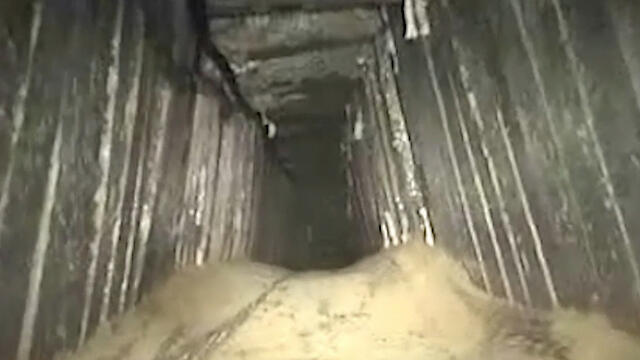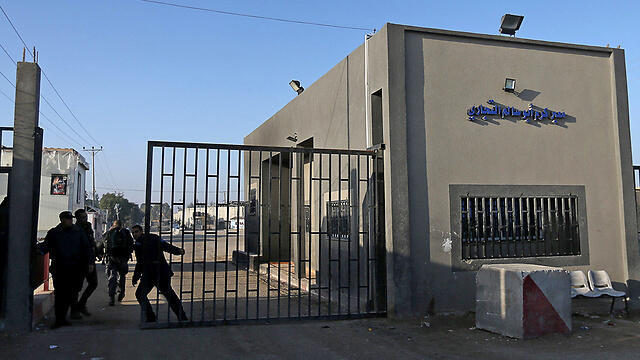Getting your Trinity Audio player ready...
Commander of the Southern Brigade in the Gaza Division, Col. Kobi Heler, told Kerem Shalom residents on Sunday that the terror tunnel discovered near the kibbutz had been completely destroyed and no longer poses a threat.
"The fact Hamas has not responded with fire after the tunnel was demolished proves we maintain our deterrence against it," Col. Heler told the residents.
"If there are other tunnels, we'll locate them using technological measures," he assured them, adding "the IDF is far better prepared now than it was before Operation Protective Edge, both technologically and with regards to the troops on the Gaza border."
Col. Heler further told the residents he views 2018 "as a year of development and growth, and I don't see, at this stage, a confrontation on the horizon."
"Hamas suffered a serious blow, we destroyed a significant assert of theirs, and this is a great achievement," he asserted.
Heler said he believed the Gaza border obstacle—an underground wall meant to stop tunnels from reaching into Israel—"will bring an end to the tunnels. We're estimating construction on it will finish by the end of 2018 or early 2019."
He noted the obstacle's construction "serves as motivation not to enter a conflict with Gaza. The objective is to avoid conflict as much as possible, at least until the end of construction on the obstacle."
3 View gallery


Col. Kobi Heler, commander of the Southern Brigade in the Gaza Division
(צילום: דובר צה"ל)
When asked what Hamas would do after the completion of the obstacle project, Col. Heler predicted the Gaza terror group would try to launch terror attacks from the air. "We're prepared for that as well, and we have a response to that," he said.
Heler repeated assessments made by many Israeli defense officials, according to which Hamas is not interested in a confrontation with Israel, "among other things in light of the intra-Palestinian reconciliation agreement. The organization doesn't want to be perceived as the one to ruin the agreement by escalating."
The tunnel reached all the way to the Egyptian side of the border and was dug from Rafah at a length of approximately 1.5 kilometers.
Israeli planes bombed the tunnel opening at around 11pm Saturday night on the Gazan side of Rafah, some 900 meters from the enclave’s border with Israel.
The tunnel penetrated 180 meters into Israel territory, passing underneath Kerem Shalom, the only commercial crossing between Gaza and Israel, which serves as the conduit for gas and diesel pipelines and antennas. Israel shut down the crossing before the IAF attack until further notice.
Employees at the Kerem Shalom border crossing were puzzled at Hamas's choice of location for the tunnel. "I don't understand why the Palestinians dug a tunnel under the crossing. What's their interest? After all, it is the only place through which commercial goods enter Gaza, it's their line of oxygen," one employee said.
Almost 600 tons of food and medical equipment went through Kerem Shalom over the past year.
"We've always assumed there are tunnels," he said. "It's a scenario we've been prepared for."
Shimon Tugeman, who owns several trucks that regularly transport goods from Israel to the strip through Kerem Shalom, said the tunnel won't deter him. "We'll keep working in Kerem Shalom, even if they keep digging, because this is our livelihood, and we've gotten used to the situation. Our trucks are loaded, but stuck until we receive approval to come to the crossing. And who's losing? Only Gaza residents," he said.
The incident marks the fourth time the IDF has uncovered and destroyed Hamas tunnels in the last three months, but a different method was adopted to neutralize the latest tunnel.



